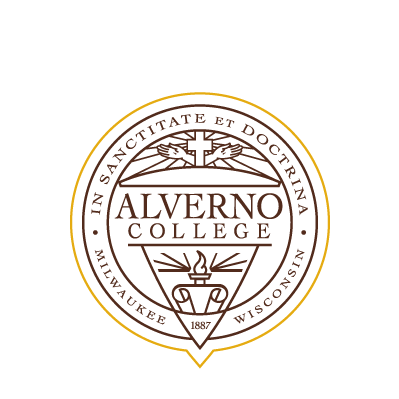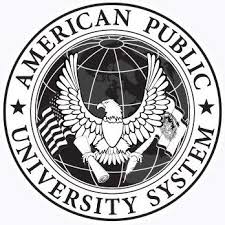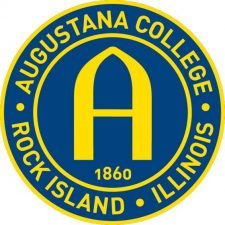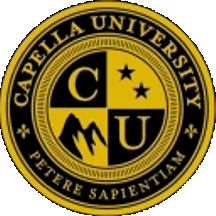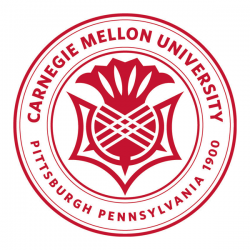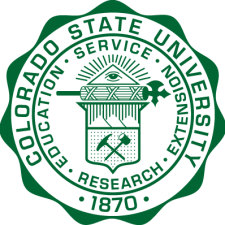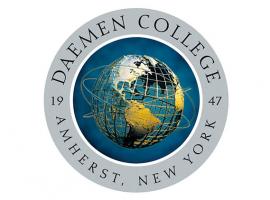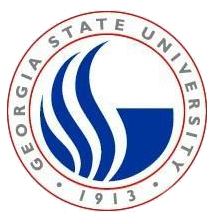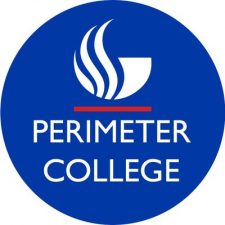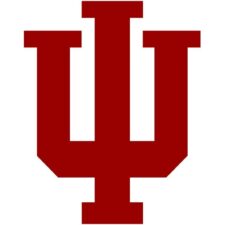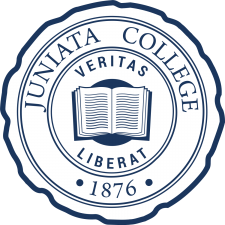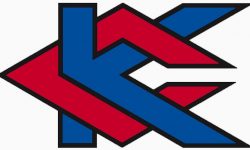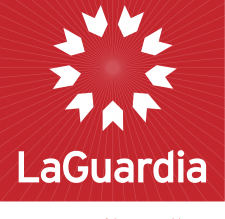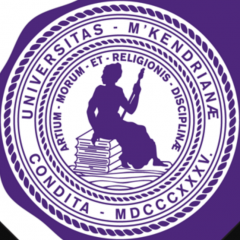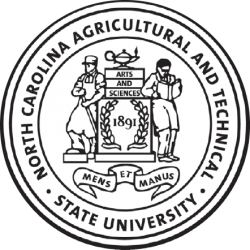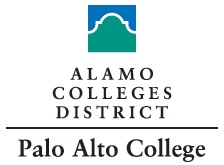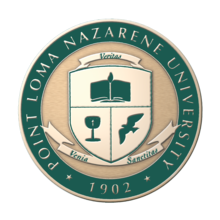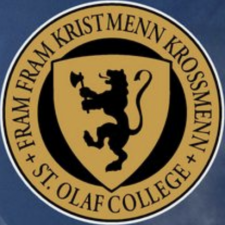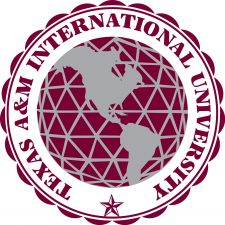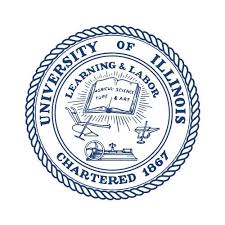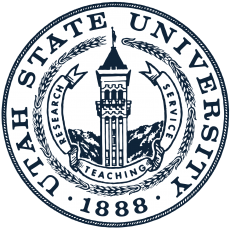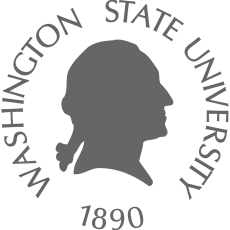Case Studies
Case studies provide short, instructive examples of good assessment practice, along with lessons learned that are widely applicable.
[/vc_section]Alverno College is a case study site due to innovative and long-standing assessment practices as well as a commitment to student-centered teaching. Although Alverno is well established in its assessment practices, other institutions can learn from and adapt many aspects of Alverno’s assessment model to improve and sustain their own meaningful assessment work.
American Public University System (APUS) is a case study site for its unique mission and significant headway made in working with the Degree Qualifications Profile (DQP), leading to institution-wide implementation and adoption, the thoughtful process for working through DQP use, the development of signature assignments, and the incorporation of the DQP framework into the university system’s program review process.
Augustana College is a case study site due to its approach to faculty involvement and a long-standing commitment to assessing and communicating student learning. Augustana’s focus on teaching and learning, the dynamic role of the Assessment Review Committee, and communication strategies has allowed them to make several improvements on campus based on their assessment activities.
Capella University is a case study site for its systematic, embedded student learning outcomes assessment process; its administrative support and vision of what assessment can do for individual learners; its transparency efforts such as Capella Results, which publicizes assessment results; and its use of assessment results to enhance learner success.
Carnegie Mellon University (CMU) was selected as a case study for the approach to student learning outcomes assessment that reflects the institution’s commitment to interdisciplinarity and innovative teaching and learning. Three elements have been instrumental in CMU’s advances in program-level student learning outcomes assessment: 1) an institutionalized research-oriented and data-informed university decision-making process driven by deans and departments; 2) an organizational culture with established processes promoting continuous improvement; and 3) the elevation of a cross-campus faculty resource–the Eberly Center for Teaching Excellence–as the hub of assessment support. The original case study took place in 2012 with a follow-up study published in 2021.
Colorado State University publicized its commitment to ensuring transparency and accountability to students, parents, and the public; expanded its continuous improvement system for managing information sharing to serve the decision-making and reporting needs of various audiences through the CSU Plan for Researching Improvement and Supporting Mission, or PRISM; uses a peer review system for feedback, and serves as a model for bridging the work of academic affairs and student affairs together through student learning outcomes assessment.
Daemen College is a case study site due to their involvement in the Council of Independent Colleges (CIC) consortium on the Degree Qualifications Profile (DQP). As part of this project, Daemen College engaged with the DQP to further their preexisting curricular mapping projects, as well as advance their newly instituted assessment program and assignment design initiative, including a co-curricular inventory.
Georgia State University (GSU) and Georgia Perimeter College (GPC) were selected as case study sites for its work in testing the Degree Qualifications Profile (DQP) to facilitate transfer. The University of Georgia System project was a partnership between GSU and GPC to explore the application of the DQP to improve the success of transfer students in biology, psychology, and criminal justice programs that involve high numbers of transfer students between the two institutions.
Indiana University Purdue University Indianapolis (IUPUI) was invited to write a case study because of its strong and rich history of using numerous forms of applied and experiential learning to promote student engagement along with its ongoing Comprehensive Learner Record (CLR) work.
Juniata College was identified as a case study site for the faculty-led Center for the Scholarship of Teaching and Learning (SoTL Center) that champions and supports evidence-based teaching; an administration-supported accountability website that provides data and information about outcomes to multiple audiences; and the use of evidence of student learning to make improvements at the institution and individual course levels.
Kansas City Kansas Community College (KCKCC) is a case study site due to its creation of an alternative system for documenting student achievement of Degree Qualifications Profile (DQP) proficiencies. Based on an interactive curriculum mapping database where faculty enter information about individual student performance on each learning outcome and competency in their courses, reports are generated for students and programs to review and direct future action.
LaGuardia Community College is a case study site due to its reputation as a leader in learning outcomes assessment, particularly through the use of electronic portfolios (ePortfolios), commitment to assessment, collaboration across units at the college, and the institution’s robust program review system which includes assessment.
McKendree University is a case study site for its crosswalk of various learning frameworks (such as the Degree Qualifications Profile, LEAP Essential Learning Outcomes, National Collegiate Athletic Association’s (NCAA) Division II Life and Balance key attributes) to McKendree’s student learning outcomes, as well as the deliberate process of gaining campus awareness and support through their committee structure and learning outcome timeline. The original case study took place in 2016 with a follow-up study published in 2020.
National Louis University is a Degree Qualifications Profile (DQP) case study institution due to the intentional use of the DQP in the design of its Pathways Program including competency development, curricular focus, and assessment alignment. NLU’s use of the DQP provides an example for other institutions interested in using the DQP to develop new programs as well as curricular pathways that include a focus upon differentiated levels of learning.
North Carolina A&T State University is a case study site due to the commitment to improving the institution by developing a culture of inquiry through administrative leadership that encourages discussions and collaboration around student learning outcomes assessment activities; the use of professional development opportunities to help foster the involvement and commitment of faculty members; and the systematic and intentional use of student feedback.
Palo Alto College was selected as a NILOA case study based on its successful efforts in adapting NILOA’s assignment design toolkit to engage faculty, staff and students in assessment. Offering intimate workshops frequently throughout the academic calendar year has created a ground swell of faculty reinvesting themselves in the curriculum.
Point Loma Nazarene University is a case study site for its involvement of faculty and staff across a range of academic fields to move beyond conversations about outcomes and curriculum alignment to significant assessment activity that is comparable across programs, as well as their efforts in transparency of process and practice.
St. Olaf College is a case study institution due to the framing of assessment as inquiry in support of student learning that is meaningful, manageable, and mission-driven; the utilization-focus/backward-design approach employed in assessment; the integration of student learning outcomes assessment processes into faculty governance structures; along with the collaborative involvement of multiple stakeholders and diverse ways in which evidence of student learning is utilized throughout the institution. The original case took place in 2012 and the update occurred in 2020.
Texas A&M International University (TAMIU) is a case study site for its commitment to choosing assessment measures and tools appropriate for its students; its long history with and innovative approach to assessment; and the influential role of professional development at the institution to help prepare “Assessment Champions and expand the number of pockets of excellence in terms of assessment practices throughout the campus.
University of Illinois at Urbana-Champaign’s case study provides insight into how the Department of African American Studies at UIUC utilizes assessment in course design, being mindful of aligning diversity and inclusion outcomes within the course and program goals, and ensuring students attain these Case Study outcomes in both in-person and online courses utilizing equitable assessments and student involvement in the assessment process
Utah State University is a case study site for the faculty-led involvement in the state of Utah Tuning projects; integration of the Degree Qualifications Profile (DQP) with various programs and colleges on campus; and bridging the work of national initiatives such as Utah’s status as a LEAP state, participation in AAC&U’s Quality Collaboratives project, involvement with the Multi-State Collaborative and WICHE Passports Initiative, general education revision; and its integration of High-Impact Practices to make connections across the entire institution to better serve students.
Washington State University (WSU) is a case study site because of its promising approach to student learning outcomes assessment in the often-challenging context of a large, highly decentralized research university, characterized by a deliberately incremental and iterative process, moving the institution step-by-step toward habits, practices, and policies that support ongoing educational improvement.
Case Studies
Case studies provide short, instructive examples of good assessment practice, along with lessons learned that are widely applicable.
Alverno College is a case study site due to innovative and long-standing assessment practices as well as a commitment to student-centered teaching. Although Alverno is well established in its assessment practices, other institutions can learn from and adapt many aspects of Alverno’s assessment model to improve and sustain their own meaningful assessment work.
American Public University System (APUS) is a case study site for its unique mission and significant headway made in working with the Degree Qualifications Profile (DQP), leading to institution-wide implementation and adoption, the thoughtful process for working through DQP use, the development of signature assignments, and the incorporation of the DQP framework into the university system’s program review process.
Augustana College is a case study site due to its approach to faculty involvement and a long-standing commitment to assessing and communicating student learning. Augustana’s focus on teaching and learning, the dynamic role of the Assessment Review Committee, and communication strategies has allowed them to make several improvements on campus based on their assessment activities.
Capella University is a case study site for its systematic, embedded student learning outcomes assessment process; its administrative support and vision of what assessment can do for individual learners; its transparency efforts such as Capella Results, which publicizes assessment results; and its use of assessment results to enhance learner success.
Carnegie Mellon University (CMU) was selected as a case study for the approach to student learning outcomes assessment that reflects the institution’s commitment to interdisciplinarity and innovative teaching and learning. Three elements have been instrumental in CMU’s advances in program-level student learning outcomes assessment: 1) an institutionalized research-oriented and data-informed university decision-making process driven by deans and departments; 2) an organizational culture with established processes promoting continuous improvement; and 3) the elevation of a cross-campus faculty resource–the Eberly Center for Teaching Excellence–as the hub of assessment support. The original case study took place in 2012 with a follow-up study published in 2021.
Colorado State University publicized its commitment to ensuring transparency and accountability to students, parents, and the public; expanded its continuous improvement system for managing information sharing to serve the decision-making and reporting needs of various audiences through the CSU Plan for Researching Improvement and Supporting Mission, or PRISM; uses a peer review system for feedback, and serves as a model for bridging the work of academic affairs and student affairs together through student learning outcomes assessment.
Daemen College is a case study site due to their involvement in the Council of Independent Colleges (CIC) consortium on the Degree Qualifications Profile (DQP). As part of this project, Daemen College engaged with the DQP to further their preexisting curricular mapping projects, as well as advance their newly instituted assessment program and assignment design initiative, including a co-curricular inventory.
Georgia State University (GSU) and Georgia Perimeter College (GPC) were selected as case study sites for its work in testing the Degree Qualifications Profile (DQP) to facilitate transfer. The University of Georgia System project was a partnership between GSU and GPC to explore the application of the DQP to improve the success of transfer students in biology, psychology, and criminal justice programs that involve high numbers of transfer students between the two institutions.
Indiana University Purdue University Indianapolis (IUPUI) was invited to write a case study because of its strong and rich history of using numerous forms of applied and experiential learning to promote student engagement along with its ongoing Comprehensive Learner Record (CLR) work.
Juniata College was identified as a case study site for the faculty-led Center for the Scholarship of Teaching and Learning (SoTL Center) that champions and supports evidence-based teaching; an administration-supported accountability website that provides data and information about outcomes to multiple audiences; and the use of evidence of student learning to make improvements at the institution and individual course levels.
Kansas City Kansas Community College (KCKCC) is a case study site due to its creation of an alternative system for documenting student achievement of Degree Qualifications Profile (DQP) proficiencies. Based on an interactive curriculum mapping database where faculty enter information about individual student performance on each learning outcome and competency in their courses, reports are generated for students and programs to review and direct future action.
LaGuardia Community College is a case study site due to its reputation as a leader in learning outcomes assessment, particularly through the use of electronic portfolios (ePortfolios), commitment to assessment, collaboration across units at the college, and the institution’s robust program review system which includes assessment.
McKendree University is a case study site for its crosswalk of various learning frameworks (such as the Degree Qualifications Profile, LEAP Essential Learning Outcomes, National Collegiate Athletic Association’s (NCAA) Division II Life and Balance key attributes) to McKendree’s student learning outcomes, as well as the deliberate process of gaining campus awareness and support through their committee structure and learning outcome timeline. The original case study took place in 2016 with a follow-up study published in 2020.
National Louis University is a Degree Qualifications Profile (DQP) case study institution due to the intentional use of the DQP in the design of its Pathways Program including competency development, curricular focus, and assessment alignment. NLU’s use of the DQP provides an example for other institutions interested in using the DQP to develop new programs as well as curricular pathways that include a focus upon differentiated levels of learning.
North Carolina A&T State University is a case study site due to the commitment to improving the institution by developing a culture of inquiry through administrative leadership that encourages discussions and collaboration around student learning outcomes assessment activities; the use of professional development opportunities to help foster the involvement and commitment of faculty members; and the systematic and intentional use of student feedback.
Palo Alto College was selected as a NILOA case study based on its successful efforts in adapting NILOA’s assignment design toolkit to engage faculty, staff and students in assessment. Offering intimate workshops frequently throughout the academic calendar year has created a ground swell of faculty reinvesting themselves in the curriculum.
Point Loma Nazarene University is a case study site for its involvement of faculty and staff across a range of academic fields to move beyond conversations about outcomes and curriculum alignment to significant assessment activity that is comparable across programs, as well as their efforts in transparency of process and practice.
St. Olaf College is a case study institution due to the framing of assessment as inquiry in support of student learning that is meaningful, manageable, and mission-driven; the utilization-focus/backward-design approach employed in assessment; the integration of student learning outcomes assessment processes into faculty governance structures; along with the collaborative involvement of multiple stakeholders and diverse ways in which evidence of student learning is utilized throughout the institution. The original case took place in 2012 and the update occurred in 2020.
Texas A&M International University (TAMIU) is a case study site for its commitment to choosing assessment measures and tools appropriate for its students; its long history with and innovative approach to assessment; and the influential role of professional development at the institution to help prepare “Assessment Champions and expand the number of pockets of excellence in terms of assessment practices throughout the campus.
University of Illinois at Urbana-Champaign’s case study provides insight into how the Department of African American Studies at UIUC utilizes assessment in course design, being mindful of aligning diversity and inclusion outcomes within the course and program goals, and ensuring students attain these Case Study outcomes in both in-person and online courses utilizing equitable assessments and student involvement in the assessment process
Utah State University is a case study site for the faculty-led involvement in the state of Utah Tuning projects; integration of the Degree Qualifications Profile (DQP) with various programs and colleges on campus; and bridging the work of national initiatives such as Utah’s status as a LEAP state, participation in AAC&U’s Quality Collaboratives project, involvement with the Multi-State Collaborative and WICHE Passports Initiative, general education revision; and its integration of High-Impact Practices to make connections across the entire institution to better serve students.
Washington State University (WSU) is a case study site because of its promising approach to student learning outcomes assessment in the often-challenging context of a large, highly decentralized research university, characterized by a deliberately incremental and iterative process, moving the institution step-by-step toward habits, practices, and policies that support ongoing educational improvement.

